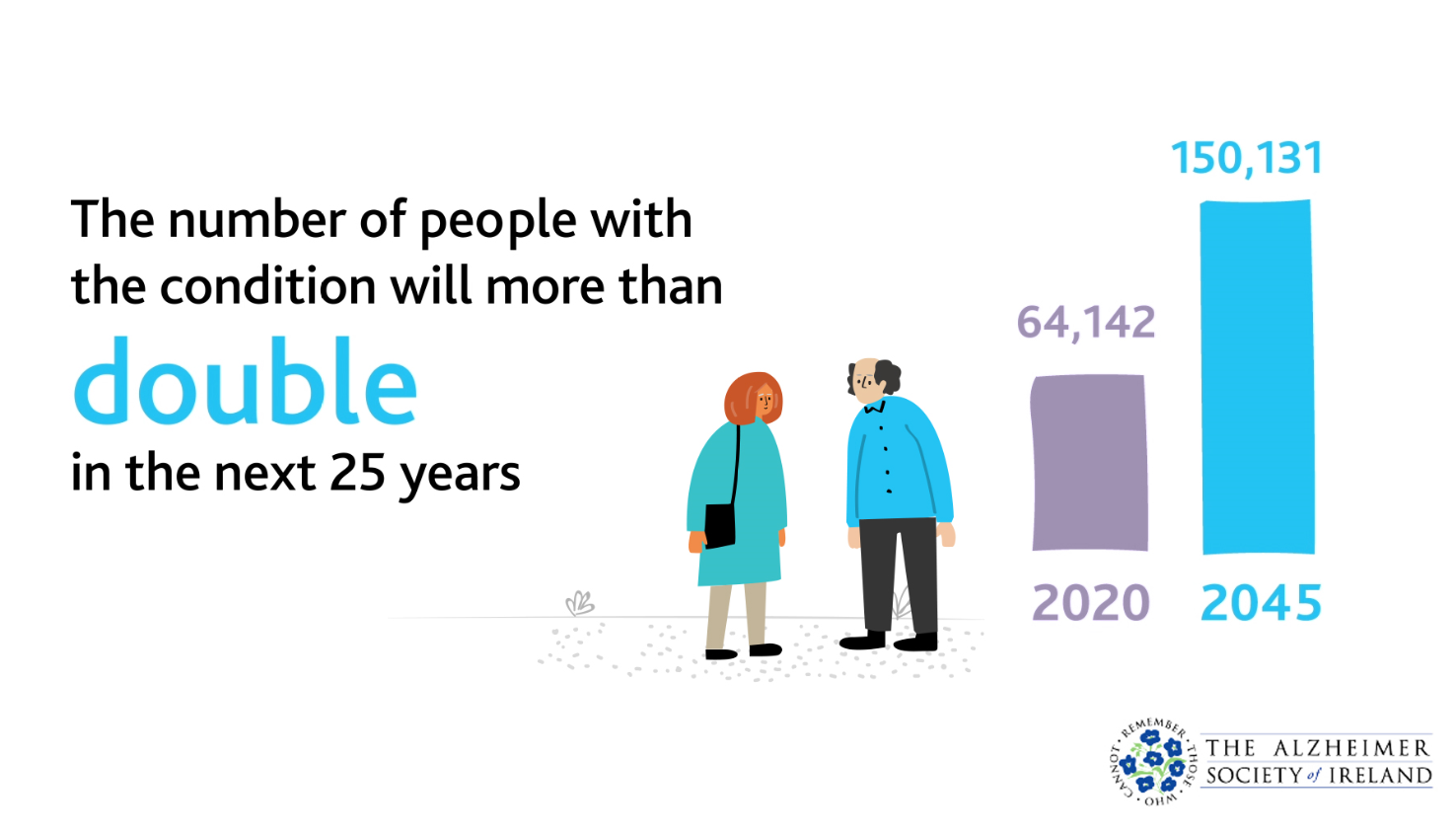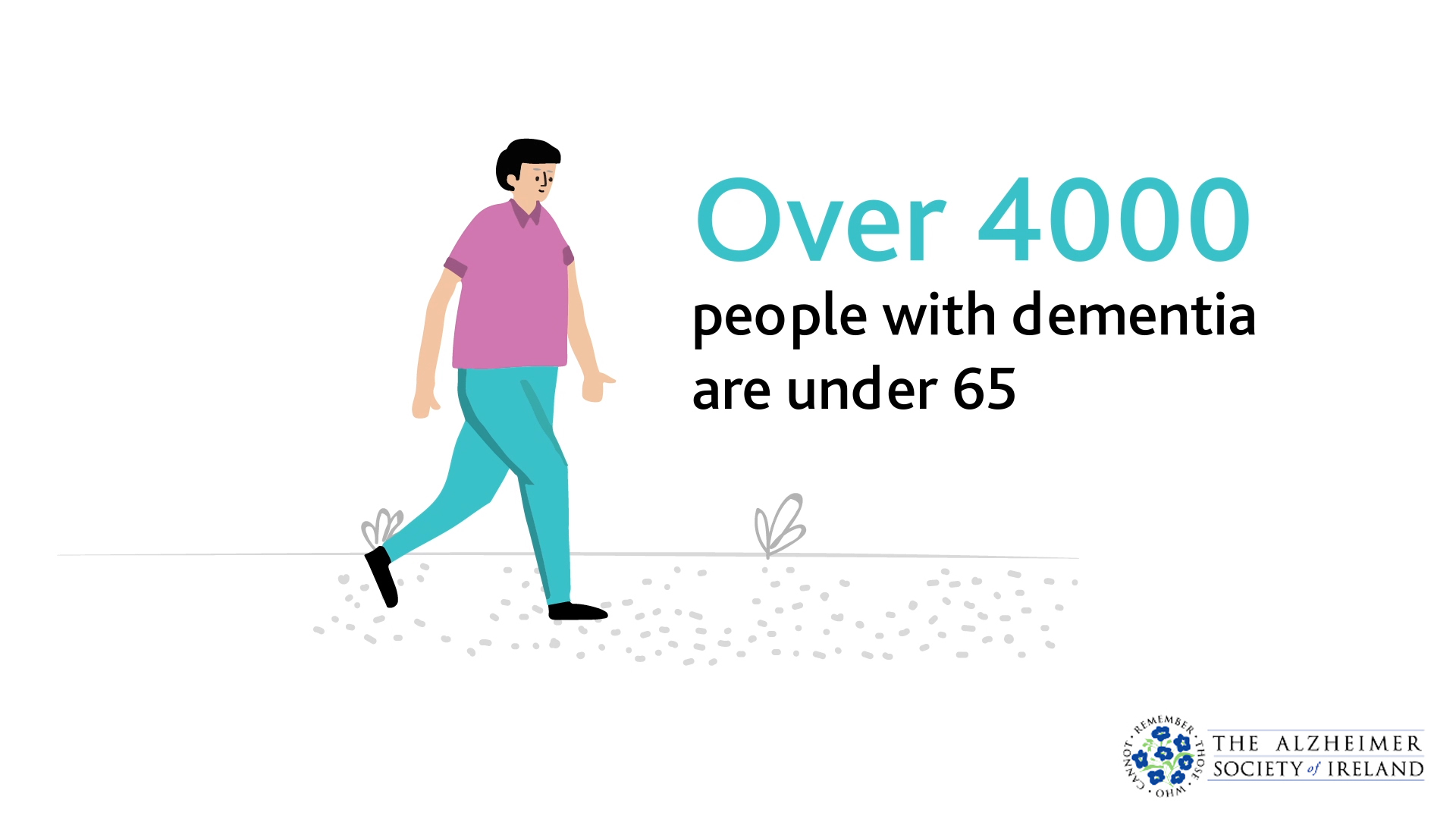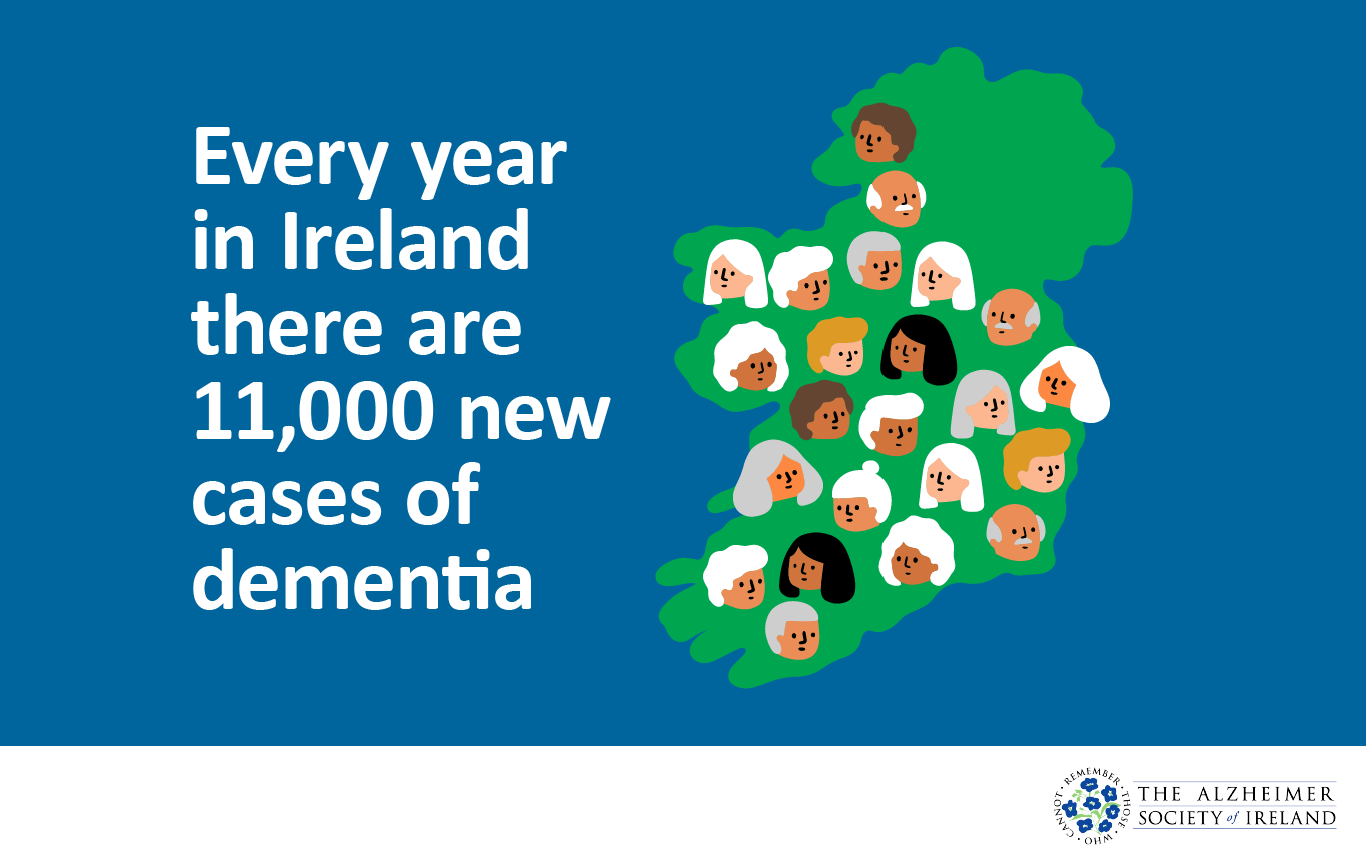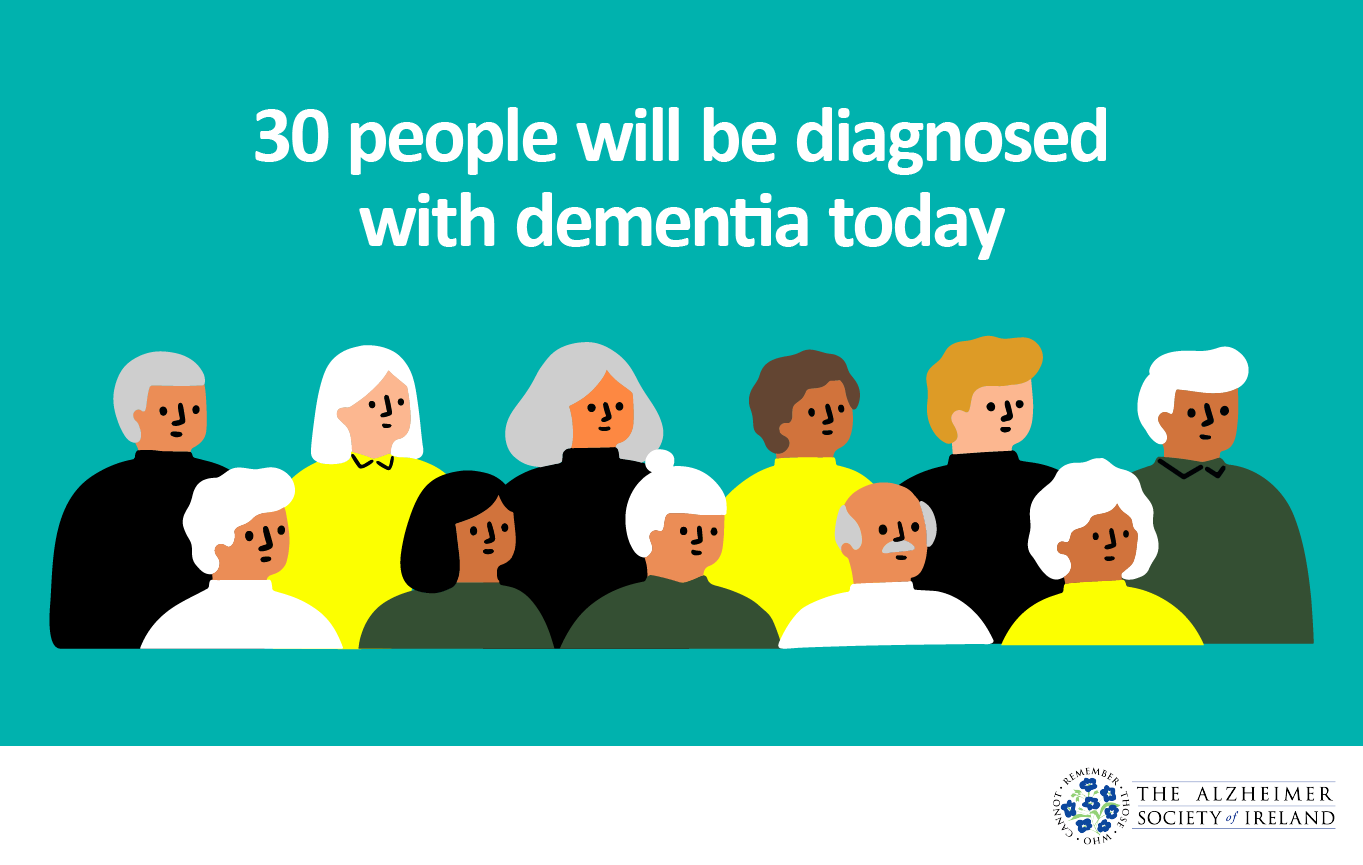Dementia in the Media
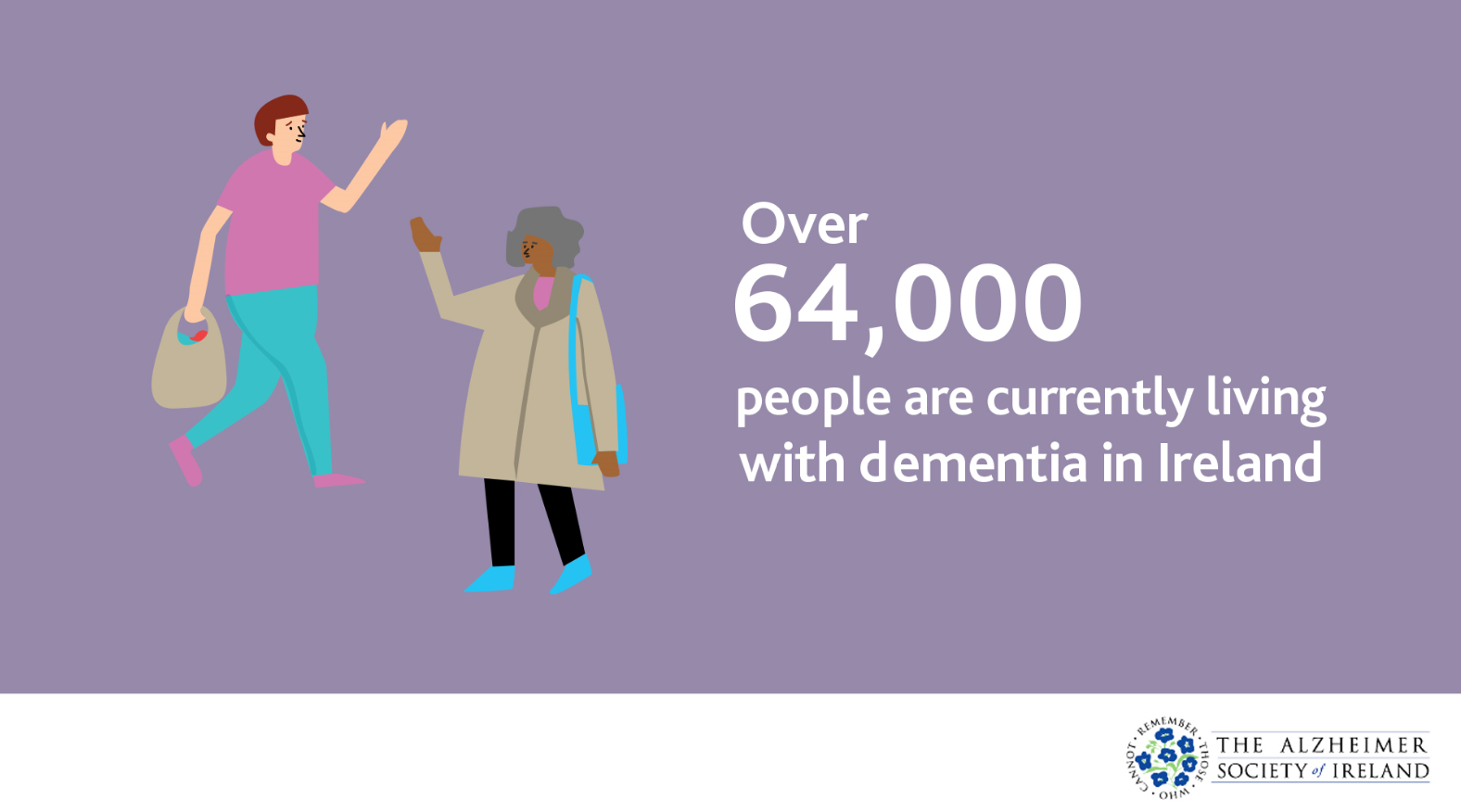
Please see below for The Alzheimer Society of Ireland’s appearances in the media, press releases, facts and figures about dementia and media guidelines. It also features information about our Communications Department.
Communications Contacts
Communications and Relationships Manager
Jocelyn Grant
[email protected]
(085) 856 71 43
Communications Officer Lead
Niamh Burke
[email protected]
(086) 029 5634
Social Media Officer
Sradha Sudarsanan
[email protected]
(086) 144 9738
Recent National Media Coverage
- Irish Independent: 31st January 2024: “Cork town intent on doing its part to overcome ‘stigma’ surrounding people living with dementia”
- Irish Examiner: 15th November 2023: “Watch: Lord Mayor sings Oh, What a Beautiful Mornin’ with clients of the Alzheimer’s Society of Ireland”
- Irish Examiner: 8th November 2023: “Cork’s Mahon Point to become Ireland’s first dementia-friendly shopping centre”
- Evoke.ie: 13th October 2023: “11 real-life superheroes honoured at glittering Hidden Hearing Heroes Awards attended by stars!
- Irish Independent: 29th September 2023: “Stark plight as third of people with Dementia cannot secure vital services, report finds”
- Newstalk: 28th September 2023: Dementia Carer Calls for More Funding
- Irish Examiner: 23rd September 2023: Irish Examiner view: Joining forces to combat dementia
- Irish Independent: 21st September 2023: Dublin couple living with Alzheimer’s renew vows after 60 years in touching ceremony
- Irish Independent: 7th September 2023: “Alzheimer Society of Ireland holding two walks in Co Wexford to raise funds for vital services”
- Irish Independent: 7th September 2023: “Dublin couple to renew wedding vows on 60th anniversary to raise money for Alzheimer’s centre”
- Newstalk: 5th September 2023: “You say goodbye twice” – Martin King on his mother’s dementia diagnosis
- Sunday World: 31st August 2023: “BRAVE | Fair City star Bryan Murray says dementia isn’t the ‘end of the world’
- RTE: 21st July 2023: “New Alzheimer’s drug offers ‘ray of hope’ to sufferers”
- RSVP Live: 18th July 2023: Donanemab: “How ‘breakthrough’ Alzheimer’s drug works, side effects and will it come to Ireland”
- Irish Examiner: 29th June 2023: ‘Your Eircode shouldn’t matter if you have dementia’
- RTE: 25th June 2023: “Special dementia ‘sporting memories’ event in Co Donegal”
- Irish Examiner: 5th June 2023: “New HSE dementia plan will ‘give us a voice’
- Irish Independent: 19th May 2023: “Her dementia is slowly worsening but former Montessori businesswoman Lily finds joy in day-care centre”
- Goss.ie: 26th January 2023: “Joanna Cooper Reveals Her Mother’s Dementia Diagnosis: ‘I Rarely Share Anything Personal Online”
- Breaking News: 7th January 2023: “Alzheimer Society of Ireland welcomes US approval of drug that slows disease progress”
- Irish Examiner: 15th December 2022: “Do They Still Recognise You? Our language matters when speaking about dementia
- RTE: 30th November 2022: “New Alzheimer’s drug hailed as ‘beginning of the end’ in search for treatment.”
- Newstalk: 30th July 2022: “Shocking’: Pamela Laird recounts her Dad’s Alzheimer’s struggle’
- Irish Sunday World: 25th January 2022: Dancing With The Stars’ Pasquale La Rocca opens up about grandparents’ dementia
- Irish Daily Mirror: 18th January 2022: The ‘early’ warning symptom of dementia which affects almost half of patients
Press Releases
- The Alzheimer Society of Ireland is appalled by the neglect, abuse, and blatant disregard for dignity shown to nursing home residents on RTÉ Investigates June 2025
- The Alzheimer Society of Ireland welcomes Minister O’Donnell announcement to commence implementation of the National Dementia Registry – May 2025
- All-Party Oireachtas Group on Dementia: Make Community Dementia Supports a Priority in Budget 2025, 24th September 2024
- Model and Entrepreneur Joanna Cooper Backs Denim Day for Dementia Campaign, Following Mother’s Dementia Diagnosis, 26th January 2023
- The Alzheimer Society of Ireland Welcomes Funding for Dementia Supports in Budget 2023 28th September 2022
- The Alzheimer Society of Ireland Officially Opens Its Drogheda Centre, with Minister Mary Butler, 23rd June 2022
- Comedian Neil Delamere and Beauty Expert and Entrepreneur Pamela Laird Invite the Nation to the Annual Alzheimer’s Memory Walk Fundraiser, Supported by Irish Life 25th July 2022
- Only Two Weeks Left until Alzheimer’s Tea Day 2022 21st April 2022
- Dáithí Ó Sé and Sinead Kennedy invite nation to the Great Tea Day Comeback on May 5th 22nd March 2022
- The Alzheimer Society of Ireland delighted to announce opening of new day care centre for people living with dementia in Laois February 28th 2022
- ‘Dancing with the Stars’ Pasquale La Rocca backs Denim Day for Dementia campaign, in memory of grandparents January 25th 2022
- Siobhan O’Connor appointed as Interim CEO of The Alzheimer Society of Ireland January 11th 2022
- The Alzheimer Society of Ireland CEO Pat McLoughlin retirement announcement 5th January 2022
Facts & Figures
ABOUT DEMENTIA
- There are 64,000 people with dementia in Ireland and the number of people with the condition will more than double in the next 25 years to over 150,000 by 2045.*
- Dementia is an umbrella term used to describe a range of conditions which cause changes and damage to the brain.
Dementia is progressive - There is currently no cure. Dementia is not simply a health issue but a social issue that requires a community response.
- The majority of people with dementia (63%) live at home in the communit.
- Over 180,000 people in Ireland are currently or have been carers for a family member or partner with dementia with many more providing support and care in other ways
- There are 11,000 new cases of dementia in Ireland each year. That’s at least 30 people every day and anyone can get dementia – even people in their 30s/40s/50s.**
- 1 in 10 people diagnosed with dementia in Ireland are under 65.
- The overall cost of dementia care in Ireland is just over €1.69 billion per annum; 48% of this is attributable to family care; 43% is accounted for by residential care; formal health and social care services contribute only 9% to the total cost.
Figures referenced to Cahill, S. & Pierce, M. (2013) The Prevalence of Dementia in Ireland
*National Dementia Office / HSE (2020) Dementia Prevalence Figures. Link.
**Figure referenced from Pierse T., O’Shea, E., and Carney P. (2019) Estimates of the prevalence, incidence and severity of dementia in Ireland and National Dementia Office / HSE (2020) Dementia Prevalence Figures. Link.
Media Guidelines – Language
- Language is our most potent means of communicating. Simply using the correct language engenders trust. This is never more the case than in the language we use when discussing medical issues – particularly Alzheimer’s disease/dementia.
- Media stories on Alzheimer’s disease/dementia contribute significantly to the public’s awareness and knowledge of the condition. Increased community understanding of dementia makes seeking a diagnosis or support so much easier for many people with concerns about memory loss.
- The more that other people understand their experience the better the quality of life for people living with dementia. Importantly, positive public images have a multiplier effect on tackling the fear and stigma surrounding Alzheimer’s disease/dementia and help make the issue one that people are more encouraged to acknowledge and address.
- By publishing these guidelines, the Alzheimer Society of Ireland is not attempting to police the language others use – it is merely intended as a guide for using language in a more sensitive manner that avoids reducing individuals with Alzheimer’s disease/dementia to a series of labels, symptoms, or medical terms. We hope it will promote consistency across the dementia care sector and be a reference for others.
- These guidelines are intended to highlight how words and language make a difference. Click here to read more about dementia friendly language.
- Alzheimer Europe published their Guidelines for the ethical and inclusive communication about/portrayal of dementia and people with dementia which can be accessed here.
Tips for Interviewing/Meeting People with Dementia
People with Alzheimer’s disease/dementia and their families are now starting to open their homes to the media to share their personal experiences of living with a condition that can make everyday activities a challenge and simple conversations difficult.
People with dementia and their families are often motivated to tell their stories because they might be able to help others who find themselves in a similar situation. Talking in a safe and affable environment to people prepared to listen and understand can give families a sense of release and freedom. But only if they are treated with dignity and understanding.
When interviewing a person with Alzheimer’s disease or related dementia, one should keep the following advice in mind:
- Remember the individual behind the condition. Report them as a person first and someone who has dementia second. Listen to their story and avoid correcting, interrupting or speaking on behalf of the person.
- Where possible, consent to participate in the interview should be sought from the person with dementia and their family carer.
- Treat the person with dementia like any other interviewee. Act naturally, greet them with a handshake, and avoid patronising or over-praising.
- Interviewing a person with dementia may require patience. If necessary, allow more time for answers and repeat questions if needed.
- Be clear and precise when seeking information on the person’s experiences, and ask only one concisely phrased question at a time.
- Dementia affects the person’s memory, so be aware that it may be difficult to answer questions requiring them to draw on their memory.
- Often the person with dementia will reply to questions with short, concise answers rather than longer, comprehensive ones, so be prepared to move on to the next point or topic.
- If you do not understand the answer you receive, ask for clarification, or repeat what you have understood for confirmation.
- Speaking clearly may help when interviewing someone with dementia but remember it is not necessary to raise your voice when speaking.
Infographics
Social Media Community Guidelines
The ASI uses social media to inform our people about our work.
We want to ensure that our community remains a safe, constructive, and informative place for engagement.
The ASI does not agree with or endorse every comment made on our page.
The ASI understands that sharing content can sometimes spark lively debate and discussion, which we encourage on our platforms.
And while The ASI is, of course, open to feedback and criticism, there are a few guidelines that we would like our online users to follow, so the debate remains respectful and constructive.
When you are commenting or posting on our social media channels, The ASI asks that you refrain from doing the following:
- Hate speech
- Profanity, obscenity, or vulgarity,
- Defamation of a person, persons, or organisations,
- Personal attacks or name-calling,
- Shouting (everything written in CAPS.),
- False, statements that are misleading or deceptive,
- Content that is completely irrelevant or repetitive,
- Personal blogs or websites that are unrelated,
- Content whose primary goal is to sell a product,
- Spam material, such as the same commenter commenting or asking questions on a profile multiple times.
At our discretion, we may revise and update these guidelines.
Commenters who engage in the behaviours above may be muted or even blocked from our channels.
Links to our social media platforms are below.
We hope you enjoy the content we post there and interact with us.

